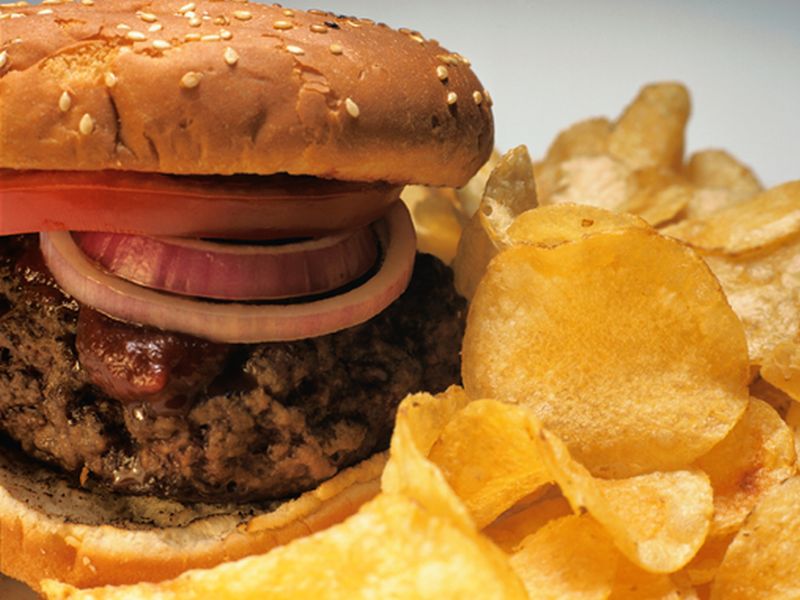
Thursday, November 5, 2015

THURSDAY, Nov. 5, 2015 (HealthDay News) -- Can't resist high-fat, sugary foods? Your genetic makeup may be to blame.
Researchers say they've identified a pair of genetic variants that interact to boost the brain's reward responses to foods high in fat and sugar.
They believe the findings might lead to new treatments for obesity.
The two genetic variants are located near the FTO gene, which is associated with increased risk of obesity, and the DRD2 gene, the researchers said.
The study, by researchers at Imperial College London, was to be presented Thursday at Obesity Week, a meeting in Los Angeles hosted by the American Society for Metabolic and Bariatric Surgery and the Obesity Society.
"For the first time, we also found that the activation in a part of the brain called the striatum was increased when those with the variant in FTO looked at high-calorie foods, but this depended on which variant of the other gene DRD2 they possessed," research team leader Dr. Tony Goldstone said in an Obesity Society news release. "The DRD2 variant alters how the dopamine system works in the brain."
The findings suggest that one reason people with the FTO variant are more likely to be obese may be because dopamine signals in their brain boost cravings when they see foods high in fat and sugar, leading them to eat more of those foods, Goldstone said.
"It is possible that people with these particular genetic variants may respond differently to certain treatments for obesity," Goldstone said.
The researchers used functional MRI to evaluate the brain responses of participants as they viewed pictures of either high-calorie or low-calorie foods. Participants were also asked to rate how appealing they found the pictures. All had had their DNA analyzed.
The findings could help researchers better understand the biological basis of behaviors that may predispose some people to obesity, said Leah Whigham, executive director of Paso Del Norte Institute for Healthy Living, in the news release.
"It could help us better target treatments for obesity so particular people get the most effective treatment, as individualized approaches to obesity are necessary," said Whigham, an Obesity Society spokeswoman.
Data and conclusions presented at meetings are usually considered preliminary until published in a peer-reviewed medical journal.
SOURCE: The Obesity Society, news release, Nov. 5, 2015
HealthDay
Copyright (c) 2015 HealthDay. All rights reserved.
- More Health News on:
- Genes and Gene Therapy
- Obesity





























.png)











No hay comentarios:
Publicar un comentario